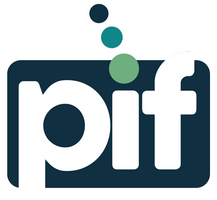Throughout the 2010s, governments and international organisations pushed harder than ever to boost financial inclusion.
Udo Mueller, CEO paysafecard
The World Bank's Financial Inclusion Global Initiative, for instance, supported reforms in countries with low bank account penetration, with the goal of achieving universal access.
Similarly, the US launched several initiatives aimed at identifying and addressing the reasons for exclusion, while the EU gave its residents the legal right to open a basic bank account.
But if these initiatives improved financial inclusion to some extent — there are currently 1.7 billion unbanked adults, down from 2 billion in 2014 — they have one critical flaw. They assume the solution to financial exclusion is invariably access to a traditional bank account.
But what if that weren't the case?
In fact, what if the unbanked and underbanked didn't want bank accounts?
'Sorry, not interested.'
For those of us who have always taken access to the traditional financial system for granted, it may be hard to understand why someone wouldn't want to have a bank account. But research suggests this is relatively common among the unbanked.
According to a Financial Conduct Authority report, a third of the UK's 1.3 million unbanked used to have a bank account but don't want to have one again. Likewise, 56.2% of unbanked Americans say they aren't interested in having one.
The numbers tell similar stories elsewhere around the world.
In many regions with low uptake — Mexico and the Philippines just to name two examples — significant proportions of the unbanked report not wanting bank accounts.
So what are the reasons for this? And what do they tell us about current initiatives to improve inclusion?
Who are the un(der)banked?
The single biggest reason the unbanked give for not wanting bank accounts is financial.
Unbanked Filipinos, for instance, cite not having enough money to meet minimum account-opening thresholds.
Similarly, almost half of unbanked Americans — 48.9% — say they don't have enough money to meet minimum balance requirements, that is the minimum they have to keep in their accounts to avoid paying maintenance fees. And unbanked UK residents say they've struggled with fees and overdrafts in the past and don't want to go through the experience again.
Given that the vast majority of the unbanked are vulnerable or come from lower socioeconomic backgrounds, this shouldn't come as a surprise. For someone on a low income, minimum deposits, minimum balances, and other fees create steep barriers to entry.
But eliminating such barriers — even if it were possible — isn't a cure-all.
Because low-income salaries are often paid at least partially in cash — tips, for instance — using a bank account may simply not be practical, particularly now that banks the world over are shrinking their physical footprints.
Computer says no
While financial status is the main reason people choose to remain unbanked, it's not the only one.
Newly-arrived expats often report struggling to access the financial system in their host countries, usually because they're unable to provide documents such as utility bills, pass credit checks, or fulfil other requirements.
Lack of trust in the financial system and a desire for privacy also loom large in people's minds. In the US, for instance, they're the second and third biggest reasons for not having a bank account.
More to the point, digitalisation — which is all too often depicted as a panacea — is having the unintended consequence of worsening exclusion, especially for those who can only pay in cash.
Charity AgeUK have observed that: 'While cash use has declined... it would be a mistake to assume that everyone in our society is willing or able to make all their financial transactions digitally.
'Being able to use cash helps people on a low-income budget more effectively, pay back a carer or friend who shops for them, as well as acting as an essential back-up for those who are not online or who live in an area with poor connectivity. Many people with health conditions, disabilities and dexterity issues find paying in cash much easier than with a bank card or a phone — it’s not easy for someone with sight loss to use a card reader, or someone with bad arthritis in their hands to hit the right buttons on a smartphone.'
BaaS: tackling exclusion by putting people first
While initiatives aimed at increasing financial inclusion undoubtedly have the best of intentions, there's clearly a mismatch. Instead of devising solutions around people's circumstances, they often push them towards a solution that may not meet their practical needs.
It's all well and good to improve access to bank accounts and digital financial services. But this won't make using them any more feasible for those on low incomes, the vulnerable, and those who don't trust the financial system.
The good news is that traditional banks and fintechs are no longer the only entities that can deliver financial services. Nor are bank accounts the only way people can gain access to the financial system. With BaaS — banking-as-a-service — we have an opportunity to enable the unbanked and underbanked to start engaging with the financial system on their own terms.
BaaS's potential lies in the fact that it makes it possible for any company to offer financial products tailored to its customers' needs, without having to become a bank.
Consider cash.
With eCash products like Paysafecash, petrol stations, supermarkets, chemists, off-licences, and other retail outlets people already use and trust can be used as a cash-in/cash-out infrastructure for accounts or for a wide range of bill payments by simply scanning a barcode generated for an individual transaction.
Another option is to exchange cash for a pre-paid voucher, like paysafecard, that can then be used to pay online. Or, the outlet can start offering branded digital walletscustomers can use to pay and get paid. Unlike traditional bank accounts, these wallets are easier to open and don't have overdrafts, maintenance fees, and other charges that can make them impractical or unaffordable.
And those are a few out of hundreds of potential use cases, some of which we may not have even thought of yet.
Put simply, the power of BaaS lies in giving banking contextual relevance, making financial services products available in the channel and format that makes most sense, instead of forcing people to engage in ways that don't work for them.
Why try to square circles, when you can meet people where they are?
Bank accounts are a means to an end, not a one-size-fits-all solution. It’s important to remember that for the financial system to be truly inclusive, it must be relevant to the people it is intended to serve.
BaaS is an opportunity to do exactly this.
By empowering any entity to become a financial services provider and create products that are designed around customers' real needs, we can move away from standard offerings for the masses that are, at best, a plaster, and start tackling the root causes of exclusion.



